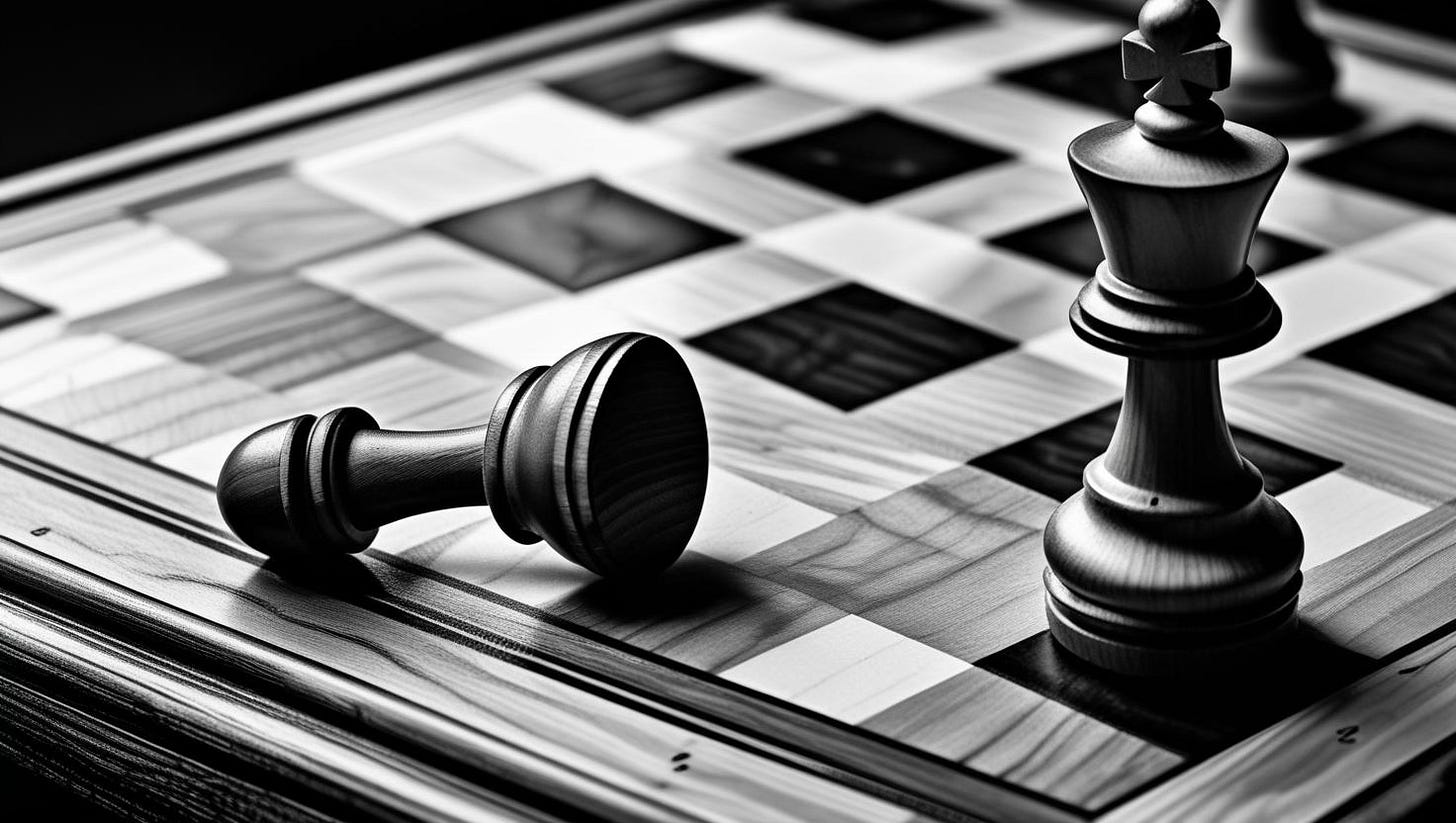The Pawn Sacrifice: Diddy's Downfall and the Theater of Selective Justice
While the media feasts on a Black mogul’s fall, the real players—handlers, enablers, and the untouchable elite—escape scrutiny. The game was never fair."
Editor's Note:
This essay was intentionally written prior to the impending verdict in Sean "Diddy" Combs' legal proceedings. Its purpose is not to prejudge the outcome, but to interrogate the broader dynamics of selective outrage and performative accountability. Whether Diddy is ultimately convicted or exonerated, the spectacle surrounding his downfall—while far more powerful figures evade scrutiny—remains the true indictment. The pawn gets sacrificed precisely so we won't examine how the board is rigged.
The Diddy Paradox: Hip-Hop’s Moral Reckoning and the Selective Outrage of Power
When federal agents raided Sean “Diddy” Combs’ homes, the spectacle was immediate: surveillance footage leaked, brands severed ties, and social media declared another Black icon morally irredeemable. The allegations against him—sexual assault, sex trafficking, and violent coercion—are grave and demand scrutiny. But the frenzy around his downfall raises uncomfortable questions: Why does society mobilize so fiercely against Black celebrity transgressions while excusing—or ignoring—the same crimes when committed by the protected elite?
This is not a defense of Diddy. It is an indictment of a system that stages accountability theater on marginalized bodies while allowing entrenched power to operate above the law.
The Calculus of Consequences
Hip-hop has long been a scapegoat for moral panic. In the 1990s, politicians blamed rap lyrics for inner-city violence while ignoring the CIA’s role in flooding those same streets with crack. Today, Black celebrities face career-ending allegations that barely dent the reputations of those shielded by institutional immunity.
Consider:
R. Kelly was rightfully imprisoned, but Jeffrey Epstein’s client list remains sealed, his associates unnamed and unpunished.
Diddy’s homes were raided by Homeland Security, while Epstein’s pilots and recruiters still walk free.
Tupac’s assault charge made global headlines; Brock Turner’s rape earned him three months in jail.
The pattern is undeniable: Marginalized fame magnifies sin; systemic power obscures it.
When media rails against rap’s “corrupting influence,” they aren’t protecting victims—they’re diverting attention from predators embedded in their own hierarchies. The same outlets that profit from hip-hop’s sensationalized excesses now feign shock when those excesses mirror America’s worst impulses.
The Distraction Playbook
Diddy’s alleged crimes are serious, but they are not unique. The music industry—and the broader architecture of privilege—engineered the very persona it now condemns. Bad Boy Records sold rebellion and excess because those themes made money. The same systems that profited from hip-hop’s outlaw image now act as moral arbiters.
Meanwhile:
Politicians implicated in sex trafficking (Matt Gaetz, Prince Andrew) face no real consequences.
Mega-church pastors hide abuse scandals while collecting tithes.
Tech oligarchs profit from platforms that algorithmically target minors—yet face zero accountability.
Why is a rapper-turned-mogul held to a higher standard than the architects of systemic exploitation?
Hip-Hop as the Canary in the Coal Mine
Hip-hop didn’t invent misogyny or violence—it reflected America back at itself. From N.W.A. exposing police brutality to Killer Mike condemning Wall Street’s exploitation, rap has always been the soundtrack of resistance. The outrage over Diddy isn’t about justice; it’s about performative condemnation.
The real question isn’t whether Diddy deserves scrutiny—it’s why some crimes ignite public fury while others are quietly buried.
Private jets to Epstein Island carried minors for years—where are the raids?
Congress trades stocks in prison telecom companies—where is the outrage?
The Catholic Church relocates pedophile priests—where are the front-page exposés?
This selective fury isn’t justice—it’s misdirection.
Conclusion: Follow the Power, Not the Spectacle
True justice has never been found in the public pillory of Black celebrities—it lives in the dismantling of systems that sacrifice pawns while protecting kings. Sean "Diddy" Combs now plays his assigned role: the disposable scapegoat in America's favorite distraction ritual. As the media feasts on his downfall, the real game continues undisturbed in corporate towers, judicial chambers, and political backrooms where the powerful make their own rules.
The silence around Kristina Khorram speaks volumes. As Diddy's longtime fixer—the handler who allegedly facilitated NDAs, arranged private jets, and managed the machinery of access—she represents the invisible infrastructure of celebrity impunity. While one man takes the fall, the professional enablers who grease the wheels of privilege simply rebrand and relocate. This isn't about individual villains; it's about an entire ecosystem where accountability flows downhill while protection flows upward. The pawn gets sacrificed precisely so we won't examine how the board is rigged.





I can’t wait for the podcast
Love your honesty and realness, I wish more journalists would be more transparent. You can tell these writings are coming from a person who witnessed events first hand. Love you Windy, keep doing your thing❤️